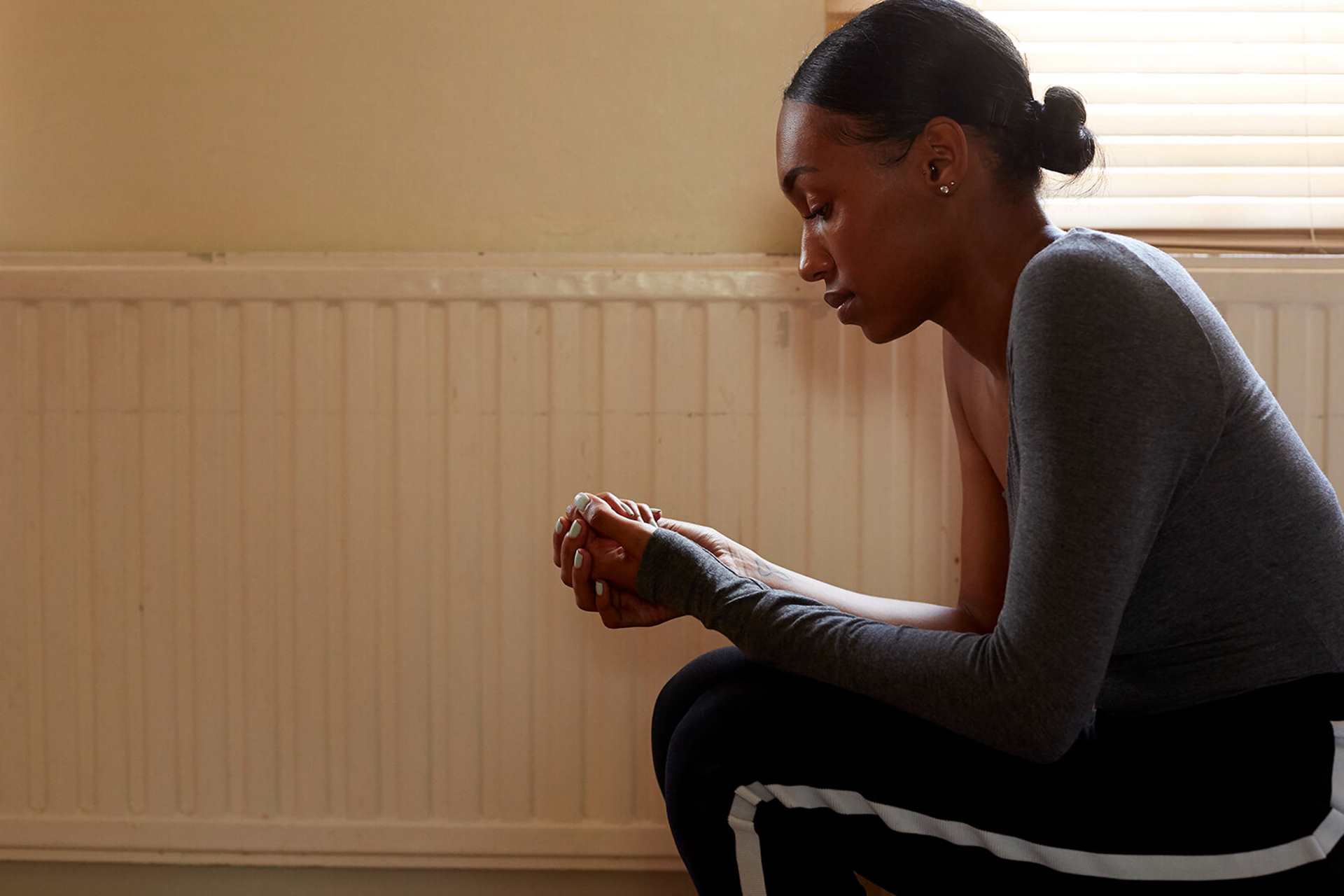Topics mentioned: eating problems
About: When recovering from an eating problem, you may encounter triggers that catch you off-guard. Emily shares how she copes with eating disorder triggers.
I often tell people that recovering from an eating disorder is like having a radio in your brain. Most of the time, the volume is pretty much all the way down to zero and you can get through your day barely thinking about it. Other days, the dial is turned up a little higher and those disordered thoughts are a little louder, a little bit more distracting. Then, sometimes, the volume dial gets turned all the way up to the max. Those thoughts become excruciatingly loud and difficult to ignore – almost like someone is screaming all of your worst thoughts…all at once…directly into your ear…with a megaphone.
Here’s the thing about eating disorders: they want to be wanted.
Here’s the thing about eating disorders: they want to be wanted.
I have been in recovery from my eating disorder for a couple of years now. Over that time, I’ve faced a handful of pretty bad triggers – whether I’ve realised it at the time or not – but recently one experience really knocked me for six.
It was the smallest, most seemingly insignificant comment – made totally innocently – but my brain completely latched onto it. Just like that, years’ worth of disordered thoughts came flooding back to me as if I’d flicked a switch and suddenly transported myself back to being 15-year-old Emily full of self-loathing. I felt awful, useless, worthless. I convinced myself that in order to deal with this, I simply must fall back into my old, damaging habits.
This was pretty scary for me (even now looking back) because despite having experienced triggers before, none had hit me this hard. None had torn through my defences like this had. The time I spent being consumed by this trigger was awful and painful but thankfully I managed to get through it using a few coping skills.
Talk about it
The first, and probably most important thing, is to tell someone you trust that you are struggling. Don’t go through this alone. I know it’s hard, but trust me - it is worth it. After all, a problem shared is a problem halved. If you don’t have someone around you to talk to, you can use the Shout Textline, or call Beat’s helpline – see the bottom of this page for more information.
The first, and probably most important thing, is to tell someone you trust that you are struggling. Don’t go through this alone.
Use therapeutic skills
When your brain is screaming a million horrible things at you, it’s hard to remember - let alone keep up with - the good habits and skills you may have learnt. But there’s a reason we learn them: because they work. For me, what really helps is:
- Mindful breathing exercises to cope with anxious, racing thoughts, such as 4-7-8 breathing (breathe in for a count of four, hold the breath for seven, breathe out for eight).
- Stream-of-consciousness writing: start writing whatever comes into your mind, and keep writing as thoughts come and go. I often feel such a sense of relief and weight off my shoulders after this!
- Write positive affirmations and body positivity quotes and stick them up around your mirror.
Remember the reasons you're in recovery
To be healthy. To have regular periods. To live longer. To find love. To go to university. To go on holiday. To travel the world. To write a book. To watch your children grow up. To own a dog. To finally be happy.
Whatever they are, remind yourself of all the reasons to keep going and keep fighting those thoughts. Keep these reasons somewhere you can see them easily and regularly.
Contrary to what your thoughts try to tell you, having an eating disorder is absolutely horrible.
Remind yourself that your eating disorder didn't serve you
Contrary to what your thoughts try to tell you, having an eating disorder is absolutely horrible. It steals days, weeks, months, years of your life. It turns you into a different person. It pushes friends away. It destroys your health. It makes you feel tired and grumpy and sad all the time. You can’t truly enjoy the moment because it’s constantly on your mind. How I wish I could turn back the clock and tell my teenage self that all that pain and sadness is just not worth it.
By reminding yourself of all the good things that eating disorders steal from your life, you can gain a sense of power over it. You don’t need that in your life anymore - you want to be happy instead.
Finally, and most importantly, if you’re trying things like this and it still isn’t helping… Seek professional support.
I believe in you – you’ve got this. We’ve got this.
I believe in you – you’ve got this. We’ve got this.
More information and advice
We have tips and advice to help you find the support you need. Take a look at our guides.
Where to get help
However you're feeling, there are people who can help you if you are struggling. Here are some services that can support you.
-
Beat
Offers information and support for anybody affected by eating disorders.
One-to-one web chat available. They also run a range of online support groups, which are all fully moderated and anonymous.
Enter your postcode in the HelpFinder to see what eating disorder support is available in your area.
View their information on helpline accessibility and confidentiality.
- Opening times:
- 365 days a year - weekdays (9am - 8pm); weekends (4pm - 8pm)
-
Shout
Text SHOUT to 85258.
Shout provides free, 24/7 text support for young people across the UK experiencing a mental health crisis.
All texts are answered by trained volunteers, with support from experienced clinical supervisors.
Texts are free from EE, O2, Vodafone, 3, Virgin Mobile, BT Mobile, GiffGaff, Tesco Mobile and Telecom Plus.
Texts can be anonymous, but if the volunteer believes you are at immediate risk of harm, they may share your details with people who can provide support.
- Opening times:
- 24/7
-
Tellmi
Formerly known as MeeToo. A free app for teenagers (11+) providing resources and a fully-moderated community where you can share your problems, get support and help other people too.
Can be downloaded from Google Play or App Store.






